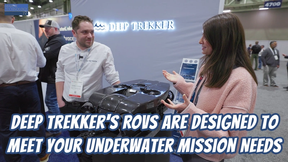The Subsea Technology Laboratory (LTS), part of COPPE/UFRJ, was created in 1989 in order to supply the increasing demand for deep water technology. Among other important projects they may soon earn international certification for a fiber optic sensor calibration system.
In its 20 years of activitiy, LTS has concluded fifteen graduate projects, fifty-five masters degree dissertations and nine doctorate thesis. Presently under way are two graduate projects, ten masters degree dissertations and nine doctorate thesis.
The laboratory has published over one hundred articles and papers in national and international magazine and events. Around two hundred and twenty technical consulting reports have also been developed.
The projects developed since its inseption have permitted the steady technological and personnel development necessary to face the challenges related to exploring the resources present in deep water seabeds.
LTS management is headed by Professor Segen Farid Estefen is the General Manager, Professor Theodoro Antoun Netto in The Studies and Research Manager and Professor Ilson Paranhos Pasqualino is the Technology Manager.
LTS is considered the most modern laboratory of its kind in Latin America and is installed in an area of approximately 1,700 m² in the Engeneering Studies and Research complex of the Technological Center in Fundão Island, in Rio de Janeiro.
The computer center at LTS is also first rate with over ninety computers and a full range of accessories. The software used for modelling finite elements is Ansys and Abaqus.
One of their main lines of research is the development of fiber optic sensors for measuring draining outflow under high pressure, which is extremely important for well surveillance and also for flow assurance in O&G production.
In order to develop these sensors, a system capable of quantifying and calibrating them is needed. To this end, it is necessary to simulated in the laboratory, the operating conditions found in subsea production wells. Simulating these conditions requires pumps and pipes with extremely high flow and pressure tolerance, associted with complex instrumentation and control modules.
Presently there are simply no labs in Brazil or Latin America, certified to calibrate fiber optic sensors. LTS is in the process of attaining certification for a calibration system for fiber optic sensors destined to measure pressure and temperature. Which for those in the know is state of art technology for real-time subsea systems surveillance.
This project is being developed through a partnership with Petrobras/CENPES (Petrobras research center). The objective is to receive ISO 17025 certification. No small feat, and which would qualify LTS to commercially develop the proposed system.
A new building for LTS is to be built. Plans are for a high cieling warehouse-like structure that is to start being built in the first semester of 2010, in an area next to the existing structure. The necessary heavy equipment and support hardware for the Flow division of LTS is to be housed there.
Their research equipment list includes horizontal and vertical hyperbaric chambers, thermo hyperbaric chamber, pipe bending and de-bending simulator, an INTRON machine capable of fatigue, traction and compression experiments, a thermographic Flir SC4000 camera and a DS 2200 electrodynamic shaker.
Research being done at LTS is impressive, some of their lines of research are:
Structural analysis of subsea pipes and risers; Altenative conceptions for subsea pipe construction; Subsea well and subsea system development; Structural analysis and repair of submarines, ships and offshore rigs and Artificial reef development.
LTS has earned many national and international prizes, probably chief among those being the 2009 Petrobras Production Area Technology Prize (for an expandable pipe project developed by graduate student Ana Carolina Aguiar and prof. Theodoro Antoun Netto).
For more information, please check: www.lts.coppe.ufrj.br/
Claudio Paschoa
Photo courtesy C. Paschoa
Paschoa, Claudio
Claudio Paschoa is Marine Technology Reporter's correspondent in Brazil.
Email: [email protected]









 December 2025
December 2025



